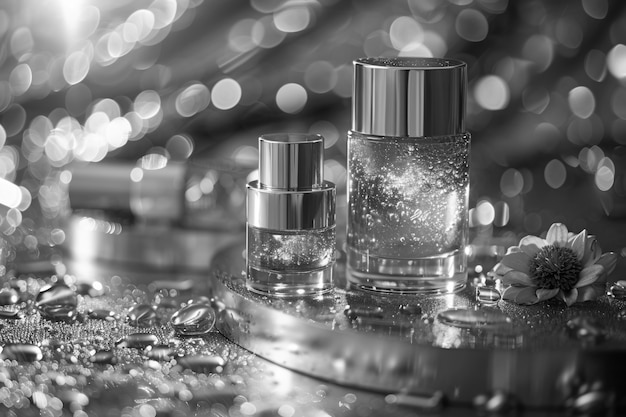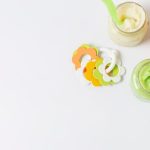
From room fresheners to cleaning supplies, perfumes and fragrances are virtually everywhere. While they may smell delightful, many contain harmful chemicals that can cause irritation or lead to more serious health issues over time. Thankfully, there are natural alternatives available that smell wonderful without polluting the air.
Perfume has been a part of human history for thousands of years, with mentions in Egyptian hieroglyphics as early as 3,000 BC. An ancient Mesopotamian cuneiform tablet from 1,200 BC even speaks of a woman named Tapputi who created perfumes by distilling flowers and other aromatics with oil. Perfumery made its way to Europe by the 14th century, becoming popular among royalty who often used it to mask body odor.
While ancient perfumes relied on flowers and other natural aromatics for their scent, modern perfumes tell a different story. In the late 19th century, chemists began isolating compounds from aromatic oils to create more stable synthetic versions that held their scent longer. These days, perfumes are rarely made using all-natural ingredients; instead, they are a cocktail of chemicals that differ greatly from those used for centuries.
Unfortunately, today’s perfumes are increasingly filled with chemicals. Thanks to a loophole in the 1973 Federal Fair Packaging and Labeling Act, companies are required to list a product’s ingredients except for fragrance components. This allows them to include potentially unsafe or untested chemicals without consumers being aware. Fragrance is often treated as a trade secret, so companies can hide multiple chemicals under the umbrella of “fragrance,” whether or not they serve an actual fragrance purpose.
When tested by the Environmental Working Group (EWG), popular perfumes were found to have an average of 14 undisclosed chemicals, some of which are known hormone disruptors and allergens. Many others haven’t been tested for safety by the USDA, International Fragrance Association, or other organizations. Today, manufacturers use around 3,100 different ingredients in varied combinations to create perfumes and fragrances, with a report from the National Academy of Sciences noting that 95% come from synthetic petrochemicals.
Some of these chemicals have serious implications. For example, one chemical linked to autism, ADHD, and neurological disorders is banned in the EU, Japan, South Korea, Canada, and China. Phthalates, associated with cancer, endocrine disruption, and developmental and reproductive toxicity, have been linked to sperm damage and altered genital development in boys. Another synthetic fragrance component can build up in fatty tissues and breast milk, is suspected to cause cancer, and is environmentally toxic. Formaldehyde, found in air fresheners and fragrance products, is recognized by the CDC as a known human carcinogen, posing cancer risks with exposure. Despite this, these are just a few out of the thousands of chemicals used in fragrances that aren’t as harmless as manufacturers want us to think.
Studies show that many people experience sensitivity to perfumes, laundry detergents, and other fragranced products. For instance, a 2017 study in Australia found that many residents suffer health effects from being around fragrances. These chemicals can trigger symptoms such as headaches and respiratory issues.
It’s clear that avoiding artificial fragrances is wise, but switching to unscented products isn’t a complete solution as they often still contain chemicals to mask the smell of other ingredients. These don’t necessarily have a floral or musky scent but are essentially a fragrance without the strong smell.
The many questionable ingredients in conventional perfumes or fragranced products make full ingredient labeling desirable, but I prefer to avoid such products entirely. Given that humans have made perfumes for millennia without resorting to synthetic chemicals, we can surely produce scents naturally once again.
Here are some of my favorite natural ways to smell good:
Simple homemade air fresheners made from essential oils not only offer pleasant aromas but also come with health benefits. For instance, sweet orange essential oil uplifts mood and has antifungal properties, lemon oil carries antibacterial and antiviral qualities, and ginger can stimulate the mind, boosting focus and energy while potentially aiding with depression.
As a busy mom, I often relish the convenience of perfume, so I created my own blend. Fun fact: your body’s chemistry alters the scent, making it truly unique to you!
If you’re not into DIY or short on time, there are products like Alitura Presence perfume, made with natural ingredients, that offer amazing scents. Describing scents online is tricky, so I’ll leave it to experts to explain its blend of cucumber, aloe, ylang-ylang, cedar, and sandalwood, among other notes.
For men, a natural DIY deodorant recipe or Otter Wax solid cologne might deliver that outdoorsy scent, with ingredients approved by the Environmental Working Group. A natural bathroom spray, called “Un-Doo,” locks smells in the toilet instead of masking them—similar natural brands are also available if DIY isn’t for you.
When making natural scents, essential oils are typically essential. Whether creating an instant perfume by mixing a few drops of your favorite essential oil with carrier oil or using a diffuser to enhance a room’s ambiance, these oils offer a non-spray option for adding fragrance.
With essential oils, there are benefits and risks, so I make sure to source mine from a brand I trust and use only kid-safe oils. Often, simmering simple spices or fresh citrus in a pot of water can wonderfully freshen a home’s atmosphere. Many natural potpourri ideas rely on items you already have in your kitchen. You might also try using a Crock-Pot or candle warmer for this purpose, but always be mindful of safety.
With so many hidden chemicals in conventional fragrances, I choose to steer clear entirely. I’ve found that I prefer natural scents over synthetic ones, even if that means applying them more frequently. What natural alternatives do you use? Have you found a perfect natural perfume for yourself?

